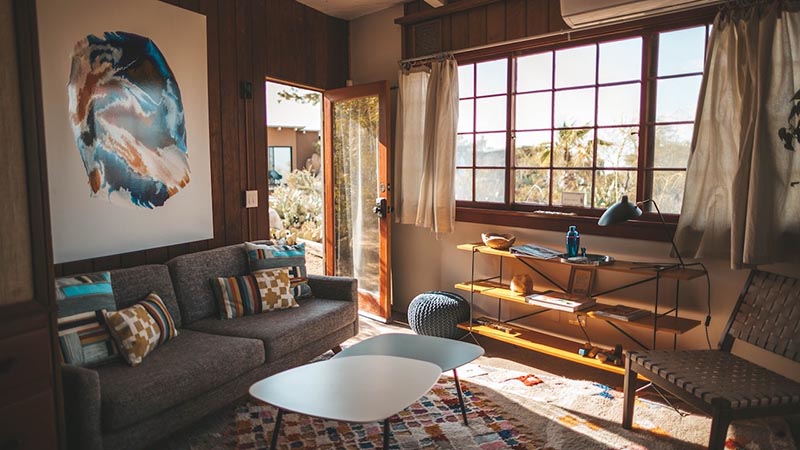Why home is the neglected aunt…
Hygge, the latest sofa style, colour of the year, new cushion collections. There is something about these home trends that suddenly feels almost decadent, indecent. You might say they were always just “first world solutions to first world problems”. Yet how we form, celebrate or even decorate and furnish our homes is suddenly more important than ever. We need home to remember who we are, and what is important.
So, let’s try to imagine ourselves in our homes in a years’ time. Sounds weird, but if we want to think and understand about how this crisis can change how we live, we can use RE-gnosis. This means we do not look from now into the future (as with prognosis), but from the future back to today. It’s not as mad as it sounds. So, imagine we are through the crisis, and we take a good look around our homes, at our walls, floors, cupboards and belongings. The worn-out Marie Kondo book is back on the shelf, and we are delighted to see that our homes are tidier, more organised, we have made them more comfortable, more practical, more functional. We have even learned to mend things ourselves, put up shelves, painted the walls, and there is a pile of things ready to go the charity shop. The kitchen table with its marks and stains no longer looks dirty and used, but tells the story of a life lived with family and friends. The cellar no longer looks like the set of a crime series and we have repurposed grandmother’s trunk from the attic. And we can still remember that warm feeling that came as we began to take control over our private space, we felt we were taking back a little control over our lives. We will wonder why we once came home and took it all for granted, why we neglected our homes, why we never really noticed or appreciated the subtle lines of the legs of the dining table, the soft curve of the arms of the sofa. We will wonder why we treated our homes like one of those aunts that you really keep meaning to see but don’t ever get round to ringing.
So, let’s also try a little backcasting. It’s a form of Re-gnosis whereby if you want to attain a particular goal, you look at the actions that need to be taken to get there. Let’s, so to speak, phone the aunt. Define a desirable future. Imagine the aunt – your home as you always envisioned it could be and work backwards to identify how you will get there. When not now, then when?
In seeing ourselves in our homes in the future we allow ourselves to look more critically at our belongings – who they were made by, where they came from and what they mean to us. Do they bring us joy (yes that!) and comfort? Do the estimated 10,000 things that each of us own, reflect our beliefs and real needs? Do we envisage “hero materials” such as cradle-to-cradle or even Vegan design, are we investing in design not simply for designs sake, but for a long-term relationship to the object, and the ideals and ideas behind it. It is, we see, not just about what things are in your home, but how they really make you feel and think.
Phrases such as “home is the place where our soul feels that it has found it proper physical container” can no longer be dismissed as just cool statements, but they cut to the heart of our new reality. The same could be said of the much ridiculed and discussed mindfulness trend. The mantra “paying attention to what you are paying attention to”, suddenly takes on new meaning and importance and urgency. Such cultural shifts and concepts are no longer seen as simply short-term solutions and dismissed as playthings for the privileged. It is about facing a new reality about where is home, how we form it and who we really want to live with.
It has been said that the most homesick are the people who have no home. We had become a world of nomads, promoting and celebrating flexible, mobile lifestyles. The future will be about reclaiming our sense of home. About understanding that home is “about the familiar, about gravity, about falling back into the self after being dispersed and over-extended in the world” (Andrew Bush, Bonnettstown, 1989).
Or simply said, Hygge is dead, long live hygge.
